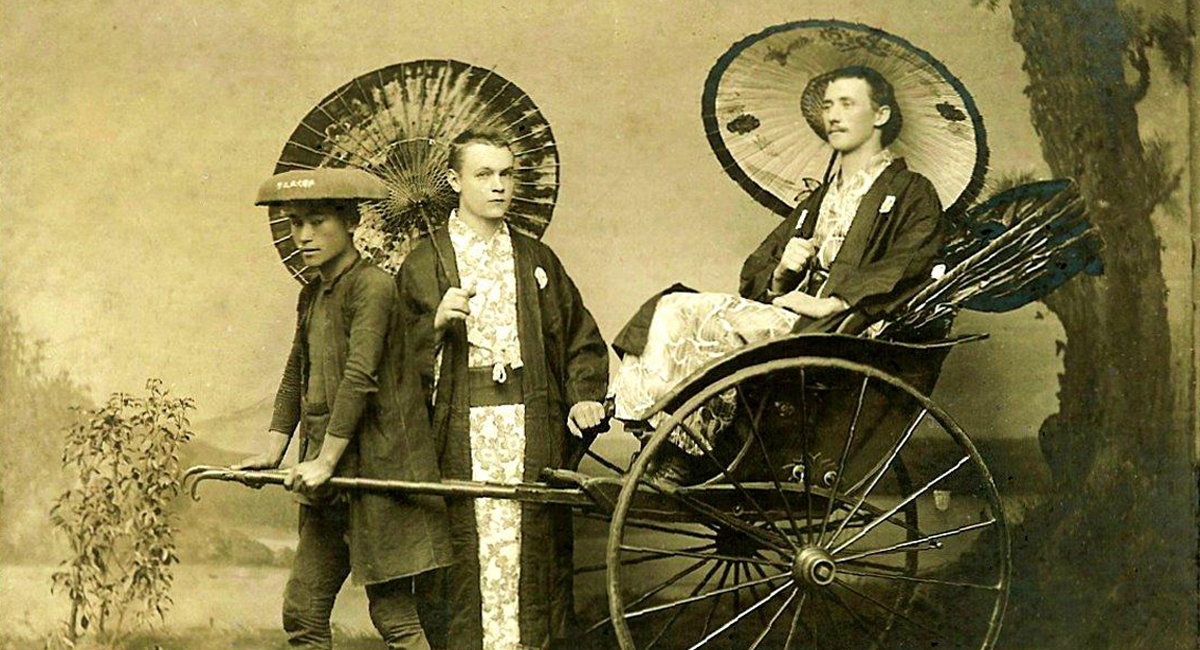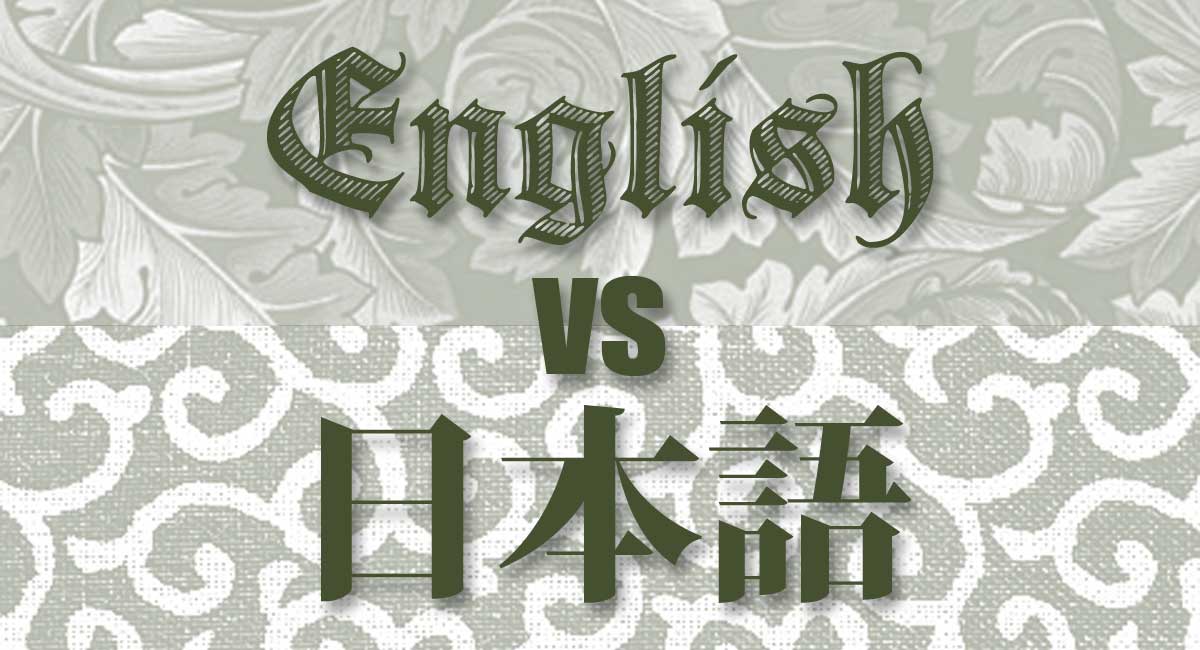
英語力があることと、コミュニケーション力は別問題。日本在住の外国人と英語で会話するときのマナーや話題について、よくわかっていないと相手に失礼になる場合があります。やってはいけないこと、やるべきこと、話すべきこと、その分別がついているといないとで、相手への理解度や距離に差がでます。
Some Japanese people do not know how to talk to foreigners well. I don't mean that their language skills are not good. I mean that they make some mistakes about the topics they choose, and the way that they speak. There are some things you should not do or say. There are some things you should say and do. If you can, you will find you get along with foreigners much better.
Click the difficult words to see the meaning in Japanese
Before you read on, I want to make some things clear:
- This is not a problem unique to Japan. People in every country need to learn to communicate with foreigners better.
- I am not saying anything about how Japanese people are or what they think. I am talking about how Japanese people come across to foreigners. Even if your intention is good, you can make a bad impression sometimes.
- This article is full of generalisations, and I know that there are many exceptions, but they are important points.
Make eye contact
When a foreigner speaks to you (in English or Japanese), make sure you look at them. Look them in the eye. You don't have to stare, but make sure you talk to them.
Talk to the person who is talking to you.
This seems an easy point to remember. However, some people are very bad at it.
Here is an example from personal experience. I used to go shopping in Japan with my wife sometimes. She is Japanese Brazilian, so she looks perfectly Japanese. If I needed some help from the staff, so would I ask them a question. Most of the time, the staff member would not look at me. They would talk to my wife, even if I keep asking questions in Japanese.
This video is a great example of what I mean:
This really happens.
A lot.
Lots of Japanese people like to talk to Asian faces, for lots of reasons. Make sure you talk to the person who is talking to you. Don't ignore them. It is very disrespectful. It is especially annoying for a foreigner who speaks decent Japanese (like me and many of my friends), because we have made the effort to learn Japanese.
Speak Japanese first
Always speak to foreigners in Japanese first.
You are in Japan, and you're Japanese! OK, I know lots of foreigners in Japan don't speak great Japanese, but they will never learn if you don't help them. Anyway, you will find out very fast if they don't understand Japanese.
Whatever you do, never assume that all foreigners speak English. I have a lot of foreign friends in Japan. Probably about 25% speak English as their first language. The rest speak Portuguese, Spanish, Italian, Russian, German, French, Swedish, Dutch, Arabic, Urdu, Chinese, Korean and more. All of them get really offended when Japanese people try to speak English to them first. And you know, they all speak Japanese very well.
Imagine if you went to live overseas, and every day people thought you were from China or Korea or Vietnam or anywhere but Japan. It would get annoying.
Japanese is about as difficult for us as English is for you.
So you should always try to speak Japanese with foreign people. Lots of us are in Japan to learn Japanese.
By the way, when you write, please don't write in romaji! Romaji ha yominikui desu! It is impossible to read!
It is rude to think that because a person is foreign they cannot speak Japanese, and they must understand English. Besides, Japanese is not really that difficult. To assume that it is too tough for foreigners is condescending. Japanese is about as difficult for us as English is for you. I'll say more about this below.
To get off to a good start with a person from abroad, ask them where they are from and what their first language is. If they are not a native English speaker, try speaking to them in Japanese.
Don't use BIG gestures
When words fail, use gestures.
When you talk to foreigners, don't use big, unnatural gestures. It's really condescending and disrespectful. It makes us feel stupid. You don't need to point. You don't need to show me numbers on your fingers. If a foreigner speaks a little Japanese, try to communicate with words. Only if you have lots of trouble communicating, use gestures. They should be your last resort.
Do not say...
Often foreigners feel like they have the same conversations with Japanese people. Sometimes your questions might be rude. Sometimes your questions could make you look ignorant.
Don't ask or say these things:
- "Does your country have four seasons?" — Any country outside the tropics has four seasons. That means most of Asia, all of Europe, North America, the top half of Mexico, the bottom half of Australia, the northern and southern parts of Africa, about a third of South America and New Zealand all have four seasons. Asking a person if their country has four seasons is a little like asking, "Does your country have air?"
- "Japanese people love the four seasons." — Some Japanese people will tell foreigners that Japanese art and culture is deeply affected by the four seasons. Because of this sensitivity, and because of Japan's four seasons, Japanese culture is so great. I think these people have never heard of Vivaldi. I am sure it is true that for Japanese people, the four seasons are important, but it's something you hear almost every day! Try a new topic.
- "Can you use chopsticks?" — Any ability questions, like about using chopsticks or about seiza or reading and writing hiragana or kanji etc., are pretty annoying. It's not that hard to use chopsticks. Maybe 50 years ago, lots of Westerners could not use chopsticks, but it's not true now. What is worse is being very surprised when you see a foreigner using chopsticks: "Oh! You use chopsticks very well!" It sounds like you think these things are too difficult for foreigners.
- "Can you eat natto/sushi/raw fish etc?" — Instead of "Can you eat...?", "Do you like...?" is better.
- "Japan is so small." — Here are some statistics: Japan has the tenth largest population in the world; Japan has the third largest economy in the world; and Japan is the 65th largest country in the world by area (larger than all the countries in Europe, except the Ukraine, France and Spain, and larger than about 75% of the countries in the world). How is Japan small?
- "Japan is unique." — So is every country in the world. So?
- "Japan is an island country." — So is the U.K, Taiwan, Sri Lanka, Iceland, New Zealand, Australia, Cuba, Ireland, and more than forty other countries. Japan was isolated for a long time during the time of sakoku, but that was many, many years ago, and since then Japanese people have had lots of contact with the rest of the world. I also think it is important to realise that in English, when you say that someone has an "island mentality", it is not a very nice thing to say. It means that a person is narrow-minded and ignorant. You don't want people to misunderstand what you mean and create a negative image of Japan or Japanese people by saying this.
- "Japanese people used to be farmers, and Europeans were hunters." — This is often used to explain why Japan has a collective culture and the West is more individualistic. Without talking about whether this is true or not, it sounds like you are saying, "When your ancestors were savages living in caves, our ancestors were growing rice and living peacefully." Foreigners will take that as an indirect insult. If you don't want to make people upset, don't have this conversation.
- "What's your blood type?" — Are you a vampire? This is a really strange question for many foreigners. Try "What's your star sign?" Westerners are usually more interested in signs of the zodiac.
- "Japanese people are not religious." — This is an idea you hear a lot as a foreigner in Japan. I think that there are two main problems with it.
First, some Japanese people imagine that foreigners go to church every Sunday and like to pray before bedtime. Some do, but not everyone. Lots of foreigners would also say that they are not religious either. Japanese people who say this are comparing themselves to an idea about foreign people that is often not true.
The second problem is the image of being religious in Japan. For some reason that I do not understand, Japanese people do not think they do religious things. I disagree. Many Japanese go to pray at the shrine or temple at New Year or other important times in the year (weddings, funerals, Obon, etc.). There are always omikuji hanging everywhere at a shrine. There are torii all over Japan. Every Japanese home that I have been in has had a kamidana, or a butsudan, or both. Before a new building is built, people often have a purification ceremony (地鎮祭). People usually say grace (いただきます) before they eat. Omamori are everywhere.
These are just a few examples, but they all seem pretty religious to me! It is all about perspective. - "Japanese is very difficult. Even Japanese people cannot speak Japanese properly!" — A lot of Japanese people assume that Japanese is a difficult language. It is true that Japanese has some difficult points, but then all languages do. Japanese also has some very simple points. In fact, it is very hard to decide if one language is more "difficult" than another. Besides, even English-speakers cannot speak English properly. Is it so hard to believe it, when a foreigner can speak Japanese?
- "In America, do you...?" — I am from New Zealand, but people ask me about the United States all the time. Or Australia. All Westerners are not from the United States. In fact, Japanese people probably know more about American culture than me!
- "When will you go back to your country?" — Any time you say "your country" it is a little bit cold. It says, "I don't know they name of your country, and I don't care." It is better to use the name of a person's country if you know it. If you don't, ask where they are from first. This question is especially cold, because it makes people feel unwelcome.
I lived in Japan for a long time, and I met many, many Japanese people. I talked to them in English and Japanese a lot. I know that most Japanese people are very kind and polite. However, sometimes they make mistakes about how they communicate with foreign people. It is not because they are unkind. It is often just because they do not know better.
If you are not sure what you can ask and say to a foreigner, or what are good conversation topics, ask us in the comments. We can help you.
_____
A couple of other notes:
- Foreigners in Japan should follow the rules in Japan. Some of the foreign people who visit Japan have very bad manners, and do not follow Japanese customs. But not all foreigners are like that. If you can treat us kindly, we will enjoy our time in Japan much more!
- For some people, the word "foreigner" is not friendly. They feel that it excludes people. For this reason, some people also don't like the word 「外人」. They think it is unwelcoming. It is safer not to use the words "foreigner" or 「外人」 if you can avoid them.


